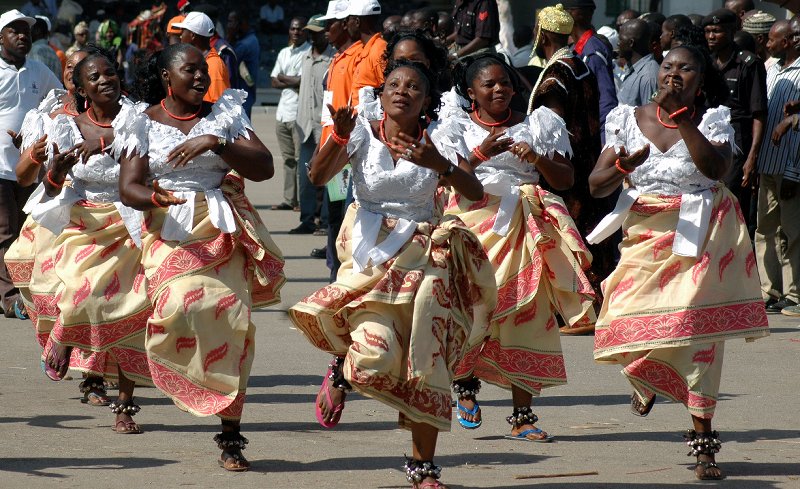On Disinheriting Igbo Daughters
In 1981, when Lazarus Ogbonna Ukeje died, his daughter Gladys, was supposed to inherit nothing from him. Not because they’d had a falling out. Not because the father thought she’d squander whatever inheritance she got. Not because she didn’t want any part of it. The reason was because she was his daughter and not his […]

In 1981, when Lazarus Ogbonna Ukeje died, his daughter Gladys, was supposed to inherit nothing from him. Not because they’d had a falling out.
Not because the father thought she’d squander whatever inheritance she got. Not because she didn’t want any part of it. The reason was because she was his daughter and not his son.
- What bandits commanders told me in Zamfara forests Sheikh Gumi
- Top bandits commander, Buharin Daji, to lay down arms soon Matawalle
Like many men of his generation, Lazarus Ukeje had no will, but it was taken for granted that the Igbo customary law of succession excluding female children from eligibility to inherit their fathers’ property would prevail. Well, this daughter was not having it. She took her stepmother and her half-brother to court to fight the disinheritance. The case reached the supreme court (because stepmother and stepmother’s son didn’t like the decision of the lower courts to void the sexist customary law ). On April 14, 2014, the supreme court upheld the decisions of the lower courts.
Sometime in the early 2000s, I went for a wedding in Enugu. The pastor in his homily pleaded with the groom to be patient with his new bride because “She’ll try you. She’ll live up to her nature, after all the word for woman, nwanyi, comes from nwa nyili mmadu.” According to the pastor, at the beginning of time, before things were named (in Igbo land) the girl child was so difficult to train, was so obstinate, that she was simply named for that singular trait of hers. I don’t know which I found worse: the sexism on brash display or the fact that many people laughed, including women, applauding the pastor’s ‘sense of humor.’ His advice to the bride was to be a good wife, to make the husband’s job of looking after her an easy one: have his meals ready on time. Keep a tidy home. Do not nag. Do not be a pain. Do not gossip.
This pastor and Gladys Ukeje’s family are not atypical. Igbo culture privileges men. There is an Igbo proverb that says that a home with only women and children is an empty one. This is the reason why so many men I know of my father’s generation went to great lengths to sire sons to keep their homes from being “empty,” sometimes at the risk of shattering the families they already had. No sacrifice was too great to be made to ensure the almighty baby boy to whom all inheritance would be left. Even men who had nothing to leave behind but their surnames and debts wanted to have “sons to be my heirs.” Biko, what are they inheriting but your wahala?
Unfortunately, it’s not just men of my father’s generation who disinherit(ed) their daughters. Despite the 2014 landmark case , young women today in parts of Igbo land are still prevented from inheriting their fathers’ estates and many of these women are unwilling to sue for their share. A feature writer for the BBC, Nduka Orjinmo, recently wrote a piece profiling two young Igbo women whose fathers died without making a will and whose greedy and selfish brothers inherited everything: land, house, money in the bank. 29 year old Onyinye Igwe, the first of nine children, dropped out of university when her father died because her three brothers kept all of the inheritance. She now sells food to support herself. Evelyn Onyenokwalu, the first of four children needed to have people intervene on her behalf to be given a small room to live in when her youngest sibling (and the only son) inherited their dead father’s property including the family house. He even forbade her from locking the door, as per the head of the family. Power corrupts and absolute power corrupts absolutely, abi? Both women accept their treatment as ‘tradition.’ Their brothers justify their nastiness as ‘tradition.’ And the cycle continues.
But it doesn’t have to. Lack of awareness contributes a lot to why this tradition still thrives. The boldness with which Onyeonkwalu’s brother told the BBC’s Orjinmo that “Here the men take it all, they give to their women whatever they wish,” is obviously one that is predicated on ignorance of the law. The Nigerian constitution forbids discrimination based on gender, therefore the custom of disinheriting the girl child is illegal. Perhaps, if there were more awareness of its illegality, more women would be less willing to accept this unfair tradition.
While I understand the reluctance to take one’s family to court, the Igbo have a saying which goes, “If you bite me in the buttocks without being mindful of (getting) feces (in your mouth), when I bite you in the head, I shan’t be mindful of (getting) brain matter (in my mouth).” Kai! Igbo proverbs are difficult to translate ooo. What manner of brother watches his sisters suffer while he sits on money, especially one he hasn’t made himself, especially one his sisters ought to have equal claim to and gloats about it? That is the brother that should be forced to do right because he isn’t about to do it by himself.
Lastly, Igbo fathers should be encouraged to write wills. Haba! Writing your will isn’t you inviting death to come now now now. It’s you ensuring that your daughters do not needlessly suffer when the resources to help them are there but are just being hoarded by some selfish git. The tradition of leaving everything to your sons is not only cruel, it is obsolete. What’s more, it’s illegal.
